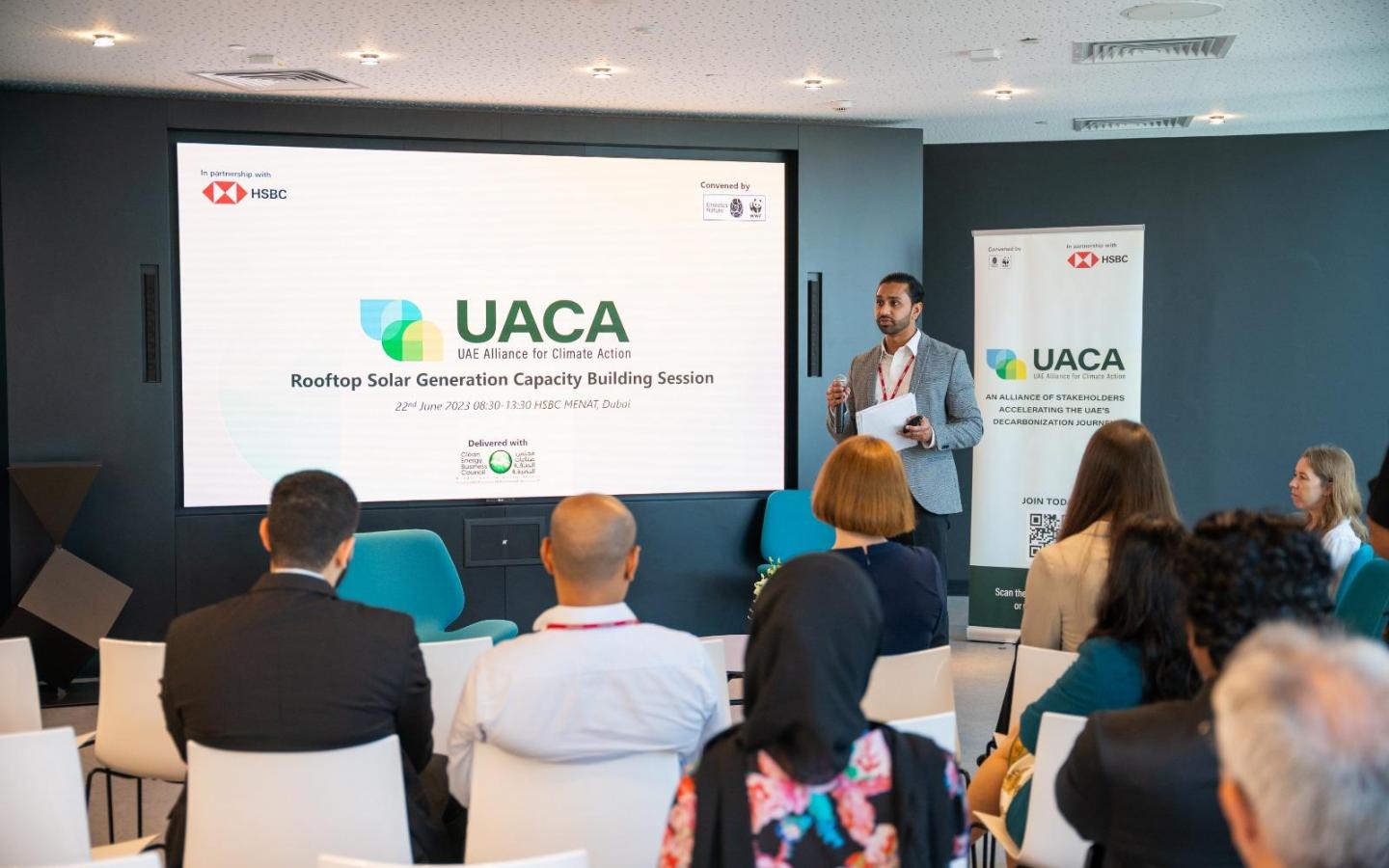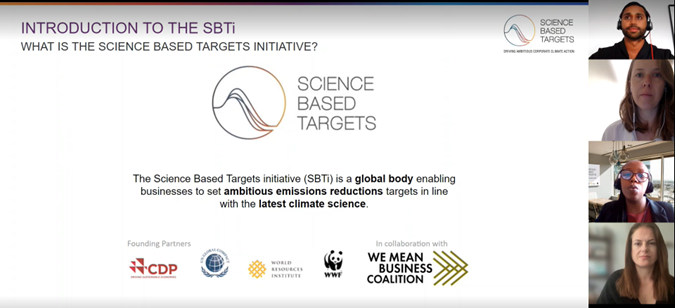Science based targets are a critical step towards net zero
Science based targets are a crucial tool for organizations that are serious about addressing climate change. They are good for the planet, and good for business too. To support organizations on their journey to set a target, the UAE Alliance for Climate Action (UACA) has launched “eMission by UACA”, a digital emissions tracking platform to support organizations in the UAE to baseline their emissions, aligning to the Greenhouse Gas Protocol and using local UAE emission factors. Register your interest now by visiting: uaca.ae or emailing [email protected]
By Nicky Velani, Project Lead, UAE Alliance for Climate Action (UACA), Emirates Nature-WWF

In recent years, there has been a growing recognition among businesses that they have a responsibility to address the urgent threat of climate change. Many companies have committed to reducing their greenhouse gas emissions and have set targets for themselves to achieve this. However, not all targets are created equal. Science based targets, in particular, are crucial for organizations to set near and long-term goals that are both ambitious and aligned with the scientific consensus on what is required to limit global warming to 1.5°C.
In 2022, more organizations than ever before stepped up to the challenge
The 2022 Monitoring Report published by the Science Based Targets Initiative (SBTi), reported an 87% increase in companies having their science based targets validated. The Asia region, which includes UAE, leads the way with a 127% growth in companies setting target in 2022.
Organizations of all sizes are part of this moment. The report found that companies representing more than a third of the global economy by market capitalization had set targets or committed to do so, while SMEs made up 58% of organizations who have set targets in 2022.
This surge in global corporate climate action represents a positive shift for business and planet. In the UAE, only 18 organizations have either committed or had their near-term/long-term targets validated by SBTi. We are seeing a rise but not at the pace required.
The moment to act on this is now, more than ever. For UAE and its homegrown organizations to deliver on ambitions to lead the charge in climate action, it is crucial to set targets. By aligning with SBTi, domestic non-state actors would build credibility and signal to the world that the UAE is serious about becoming a global leader in climate action.
At Emirates Nature-WWF, we’re excited to see and support more local companies in this endeavour. We’ve put together the following guide to highlight the top benefits of setting targets, and welcome all interested UAE-based organizations to join UACA – the UAE Alliance for Climate Action – to fast track their decarbonization and net zero journey.

What exactly are targets?
Put simply, targets are greenhouse gas reduction targets that are in line with what the latest climate science says is necessary to limit global warming to well below 2°C above pre-industrial levels, and to pursue efforts to limit warming to 1.5°C. This means that targets are not arbitrary or aspirational goals, but rather are based on the best available scientific evidence.
The Science Based Targets initiative was established in 2015 by CDP, the United Nations Global Compact, World Resources Institute and WWF to show companies and financial institutions how much and how quickly they need to reduce their greenhouse gas emissions to prevent the worst effects of climate change.
Science based targets are good for business
There are several reasons why targets are important for organizations.
1.Science based targets (SBTs) are an effective way for businesses to contribute to global climate action.
By aligning their emissions reduction goals with the latest science, companies can help to ensure that global warming is limited to a level that is compatible with a safe and stable climate.
2. SBTs help companies stay competitive in a rapidly changing business landscape.
As more and more businesses set ambitious emissions reduction targets, those that fail to do so risk being left behind. Moreover, as governments around the world introduce policies and regulations to address climate change, companies that have already set targets will be better placed to adapt and thrive in this new environment.
3. SBTs help companies manage risks and seize new opportunities.
By understanding the risks associated with climate change and taking action to reduce their greenhouse gas emissions, companies can reduce their exposure to physical and transitional risks, such as extreme weather events, supply chain disruptions, and changing consumer preferences. At the same time, companies that are proactive in addressing climate change may also be able to capitalize on new business opportunities, such as the growing demand for low-carbon products and services.
4. Setting SBTs helps build trust with their stakeholders.
Investors, customers, employees, and other stakeholders are increasingly demanding that companies take action on climate change. By setting targets and reporting on their progress, companies can demonstrate their commitment to addressing this critical issue, and build trust and credibility with their stakeholders.
The urgency of the climate crisis demands action
While the benefits of setting targets are clear, it is important to acknowledge that this is not an easy task. It requires a deep understanding of a company's operations, as well as a commitment to making significant changes to reduce greenhouse gas emissions. Moreover, achieving targets will likely require collaboration with suppliers, customers, and other stakeholders.
Every organization has a responsibility to do its part in reducing greenhouse gas emissions and addressing climate change. Setting targets is a critical first step in this process. This requires taking an holistic approach to emissions reduction, from energy efficiency measures to the adoption of low-carbon technologies and the use of renewable energy sources.
At the same time, organizations must also engage with their suppliers, customers, and other stakeholders to encourage them to adopt similar measures. Collaboration is key to achieving targets, and it will require a collective effort from all stakeholders.
UACA is an accelerator that supports UAE-based non state actors, including businesses, organizations and academia, in setting targets as well as net zero targets, to increase momentum towards a net zero future. UACA has also developed a digital web-based platform to support organizations to baseline their emissions, serving as a crucial first step before setting targets. To learn more about the alliance and how your organization can be part of it, visit: uaca.ae.



